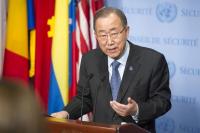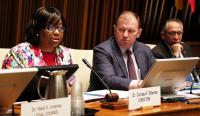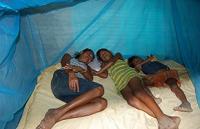Health information and records in the work of Community Health Agents
 Joaquim Venâncio Polytechnic School of Health (EPSJV/Fiocruz) promoted, on March 10, the 1st International Seminar on "Information and Health Records in the Work of Community Health Workers (CHWs)". To constitute a space for exchanging and sharing experiences and knowledge about the role of these professionals, the event brought reflections on the performance of these workers in different Latin American countries. The meeting was broadcast live in Portuguese and Spanish on VideoSaúde's Youtube channel.
Joaquim Venâncio Polytechnic School of Health (EPSJV/Fiocruz) promoted, on March 10, the 1st International Seminar on "Information and Health Records in the Work of Community Health Workers (CHWs)". To constitute a space for exchanging and sharing experiences and knowledge about the role of these professionals, the event brought reflections on the performance of these workers in different Latin American countries. The meeting was broadcast live in Portuguese and Spanish on VideoSaúde's Youtube channel.
The activity is part of the Work Plan of the Collaborating Center of the Pan American Health Organization of the World Health Organization (PAHO/WHO) for Health Technician Education, and was carried out in collaboration with the International Network for Education of Health Technicians (RETS). Moreover, it is one of the outcomes of the research and innovation project "Health Information and Records for the training of community health workers: production of an interactive e-book", which was funded by the Inova Fiocruz Program and coordinated by EPSJV teacher-researchers Bianca Leandro and José Mauro Pinto.
According to Bianca, the event, which brought together experiences from six countries - Brazil, Ecuador, Colombia, Bolivia, Chile, and Costa Rica - had a previous survey of interested parties, in which about a thousand people signed up. "Of this public, 90% were people from Brazil and the other 10% from countries in the rest of the Americas. We had subscribers from about 20 countries and 90% declared themselves as CHWs or community health workers. In other words, besides mobilizing training institutions interested in this theme, we also mobilized the workers themselves who exercise this function to participate in our event", said Bianca.
At the meeting's opening, the Escola Politécnica's director, Anamaria Corbo, spoke about the School's role of cooperation and national and international articulation. According to her, since the School became a WHO Collaborating Center, in 2004, and soon after the Executive Secretariat of the International Network for Education of Health Technicians (RETS), the discussion about the community worker in Primary Care has always been fundamental. "The formation of this worker in Primary Care has been configured in very different ways in different countries. There are places, for example, where these workers are part of the national health systems; and there are others where they are voluntary workers. What is important to note is that, for some years now, the issue of telehealth and information and records have posed great challenges for us to think about work processes in all countries," said Anamaria.
After the opening session, a round table was held with the presence of Bianca Leandro Marcelo D'Agostino, from PAHO/WHO; Eduardo Casañas, from Instituto Superior Tecnológico Liceo Aduanero (ISTLA), from Ecuador; Adriana Ardilla, from the District Health Secretary of Bogotá, Colombia; Policarpo Flores, from the National Health School of Bolivia; Carol Rojas, from the University of Costa Rica (UCR); and Ivan Niesel, from the University of La Frontera, Chile.
In Bianca's view, the sharing of knowledge served to show how there are similarities in the performance of this worker in the production of health records and information, and how this is a topic that needs to be valued by the management in their daily lives. "It is not an automated job. The CHW is not a machine that produces health data, but rather a protagonist subject in this production of information that will be important for the organization of Primary Health Care and in this worker's own daily performance", said Bianca.
For Eduardo Casañas, the presence of experts on the subject provided valuable information, not only about what is done in other countries, but about what can be done to improve the performance of community health agents and health managers. "I believe that a better delimitation of activities is necessary, with more education and training for these workers to be able to intervene on the community's risk factors according to their competence. Otherwise, PHC will be reduced to statistics and not to health transformation", he said.
For the International Cooperation Coordinator of the Polytechnic School, Carlos Batistella, the area of health information and records proved to be even more necessary after the Covid-19 pandemic. Health information, according to him, has always been seen as a reducer of uncertainty, capable of pointing out priorities and guiding responsible planning and timely decision making. "During the pandemic, however, we experienced diverse and challenging scenarios, ranging from the large circulation of false and misleading information about the origin of the disease and forms of prevention, to the absence and withholding of information, to the extreme difficulty of obtaining reliable data on indigenous territories and slums," he pointed out. More than ever, concluded Batistella, "the territorialized information is fundamental for the definition of local policies. Health technicians are strategic actors not only as data producers, but also as users of relevant information that should be returned to their actions in the territories".
More information
Term of reference in Portuguese: https://www.epsjv.fiocruz.br/sites/default/files/files/Seminario%20Internacional_IRS_ACS_TERMO_REFERENCIA_Port.pdf
Term of reference in spanish: https://www.epsjv.fiocruz.br/sites/default/files/files/Seminario%20Internacional_IRS_ACS_TERMO_REFERENCIA_Esp.pdf
Seminar in portuguese: https://www.youtube.com/watch?v=7_WA7Dl6vUo
Seminar in spanish: https://www.youtube.com/watch?v=5MPm39oQq-U
Presentations:
-
Bianca Leandro (EPSJV/Fiocruz) - Brazil: https://www.epsjv.fiocruz.br/sites/default/files/files/Bianca_Leandro_Brasil.pdf
-
Eduardo Casañas (ISTLA) - Ecuador: https://www.epsjv.fiocruz.br/sites/default/files/files/Eduardo_Casanas_Equador.pdf
-
Adriana Ardila Sierra (District Health Secretariat of Bogotá) - Colombia: https://www.epsjv.fiocruz.br/sites/default/files/files/ADRIANA_SIERRA_COLOMBIA.pdf
-
Policarpio Florez (ENS) - Bolivia: https://www.epsjv.fiocruz.br/sites/default/files/files/Policarpio_Flores_Bolivia.pdf
-
Ivan Niesel (CECOSF) - Chile
-
Karol Rojas (UCR) – Costa Rica
-
Marcelo D'Agostino (PAHO/WHO)



